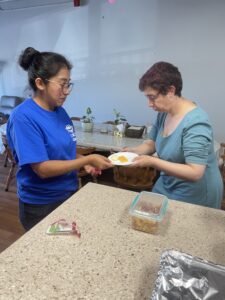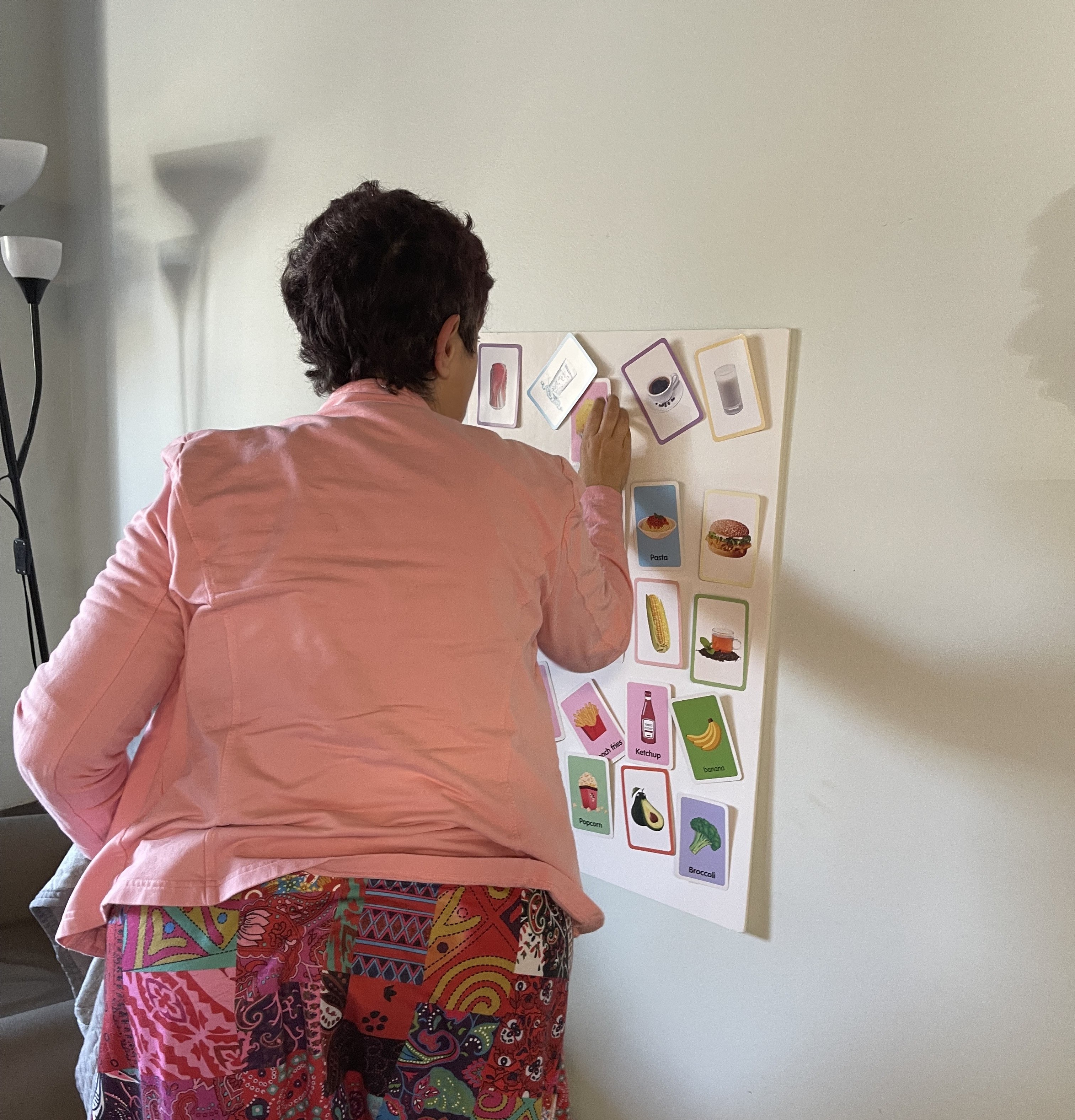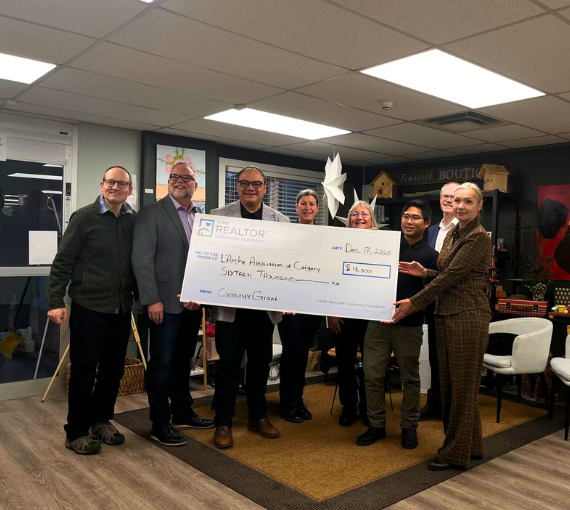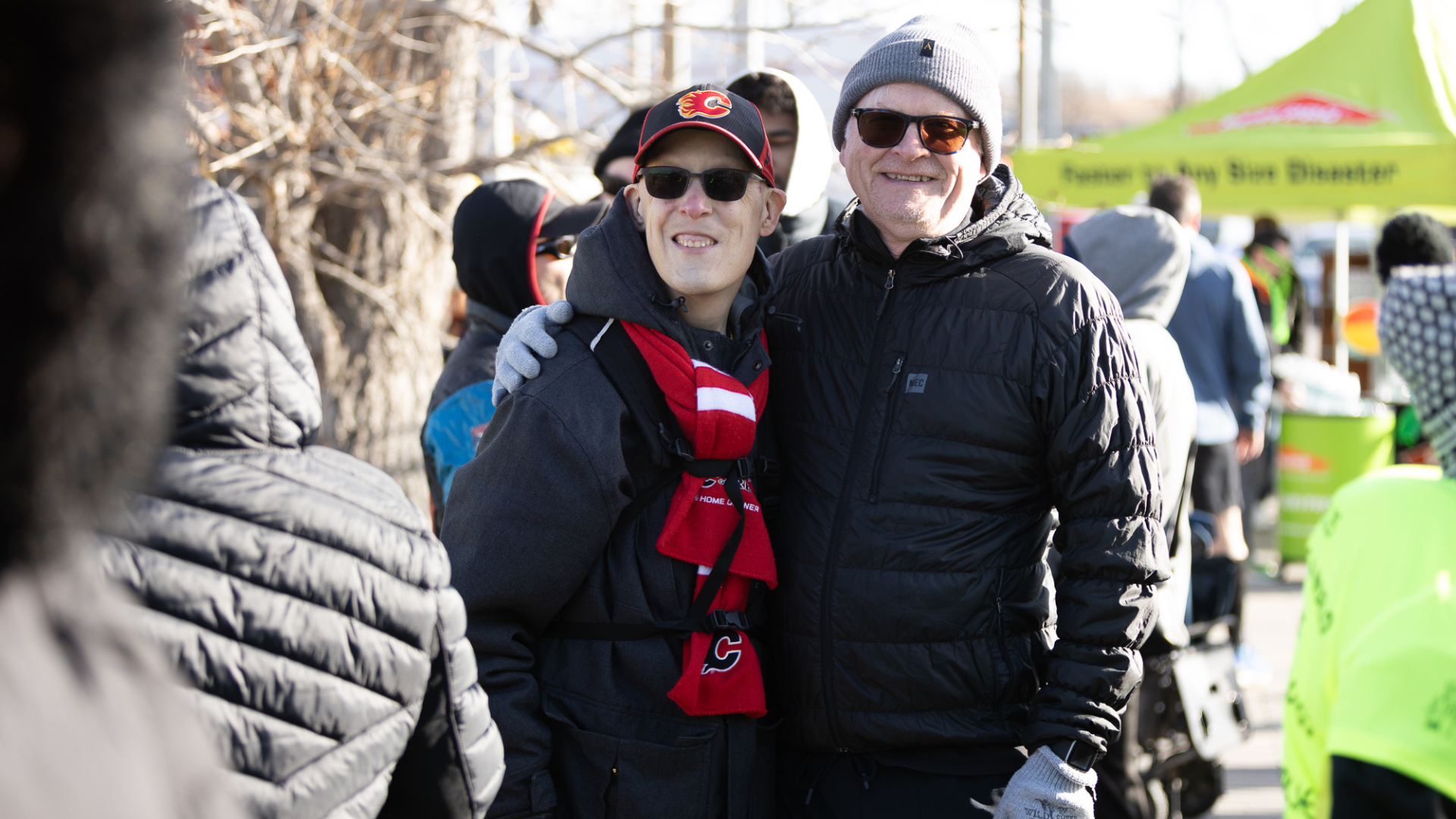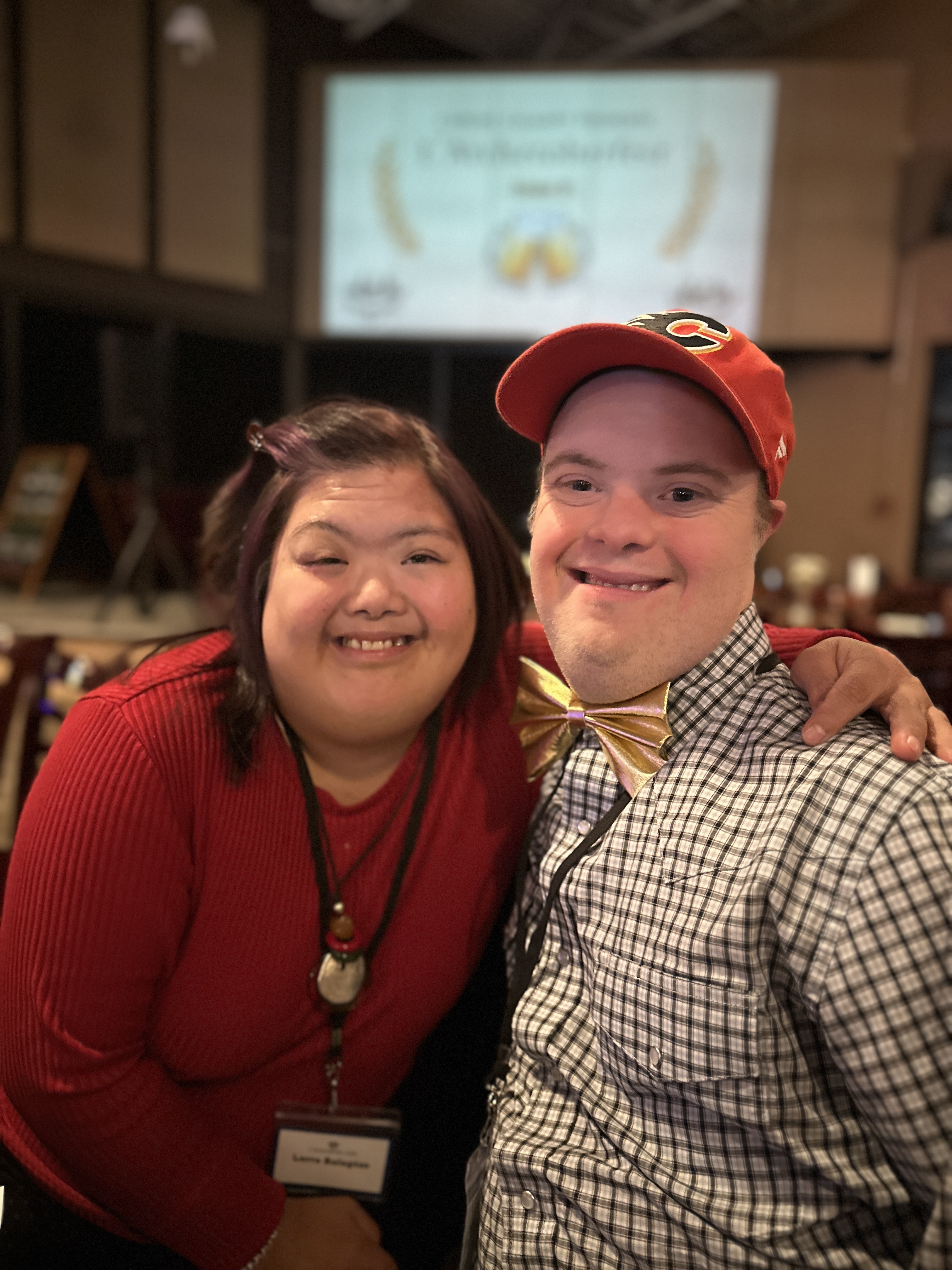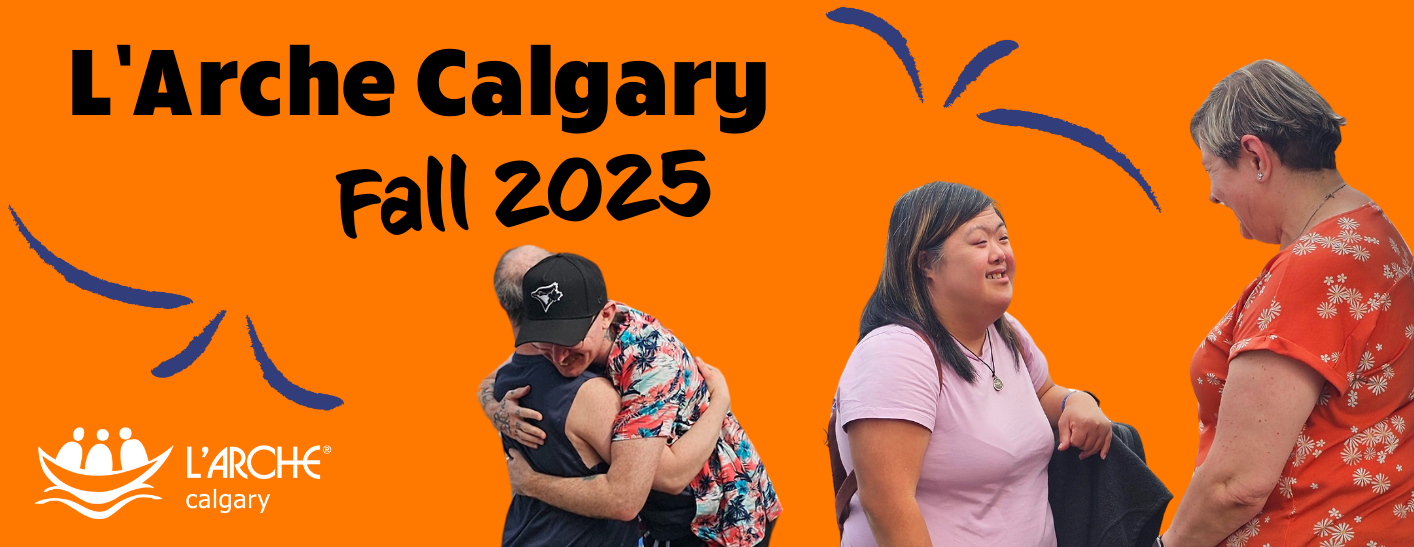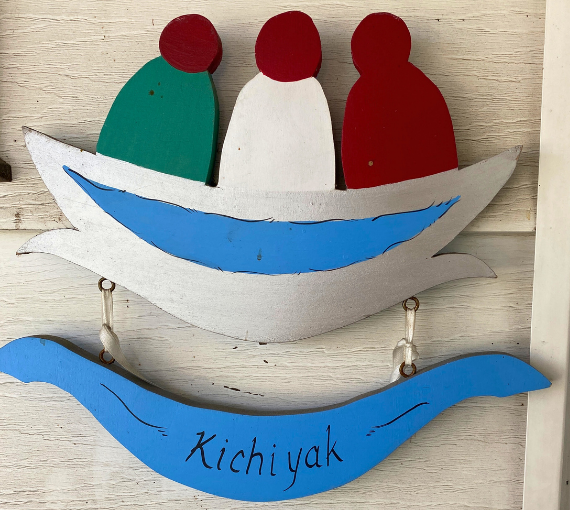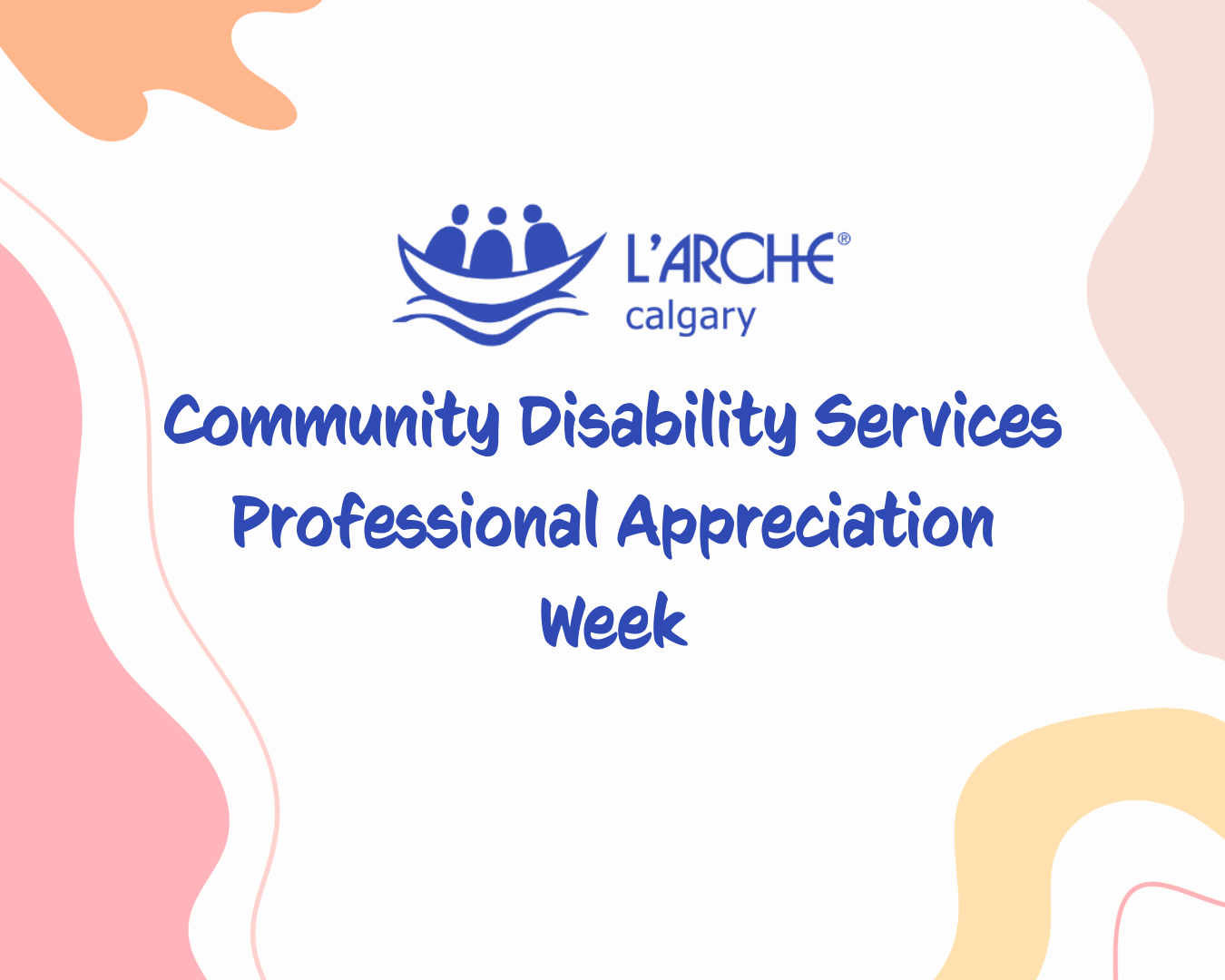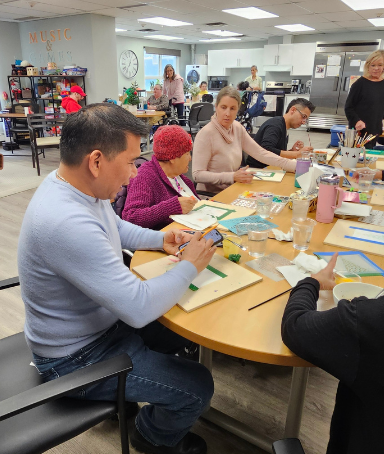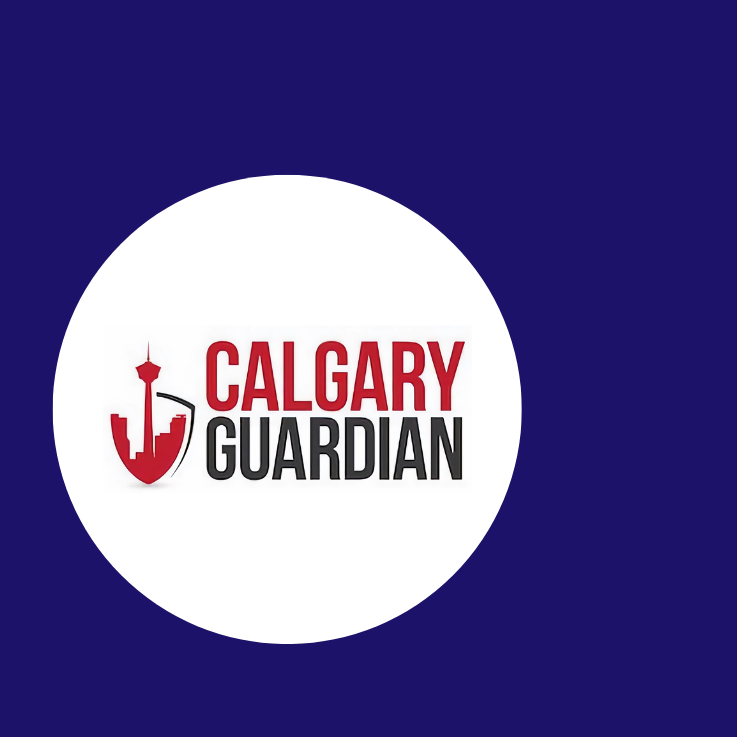At Villa Maria, one of five L’Arche Calgary homes where people with and without developmental disabilities live in community, Core Member Shula is doing something extraordinary. She’s learning a new method of communication.
Using the Picture Exchange Communication System (PECS), Shula, who is autistic and does not communicate with words, has begun selecting images to ask for what she wants: cheese, coffee, pasta, water, a book.
Her mother, Rachelle Namak, calls it astonishing.
“Over the years, in the various programs she was involved with, they would try picture cards, which is not a new technology, and Shula would simply scream and tantrum,” Rachelle says. “I don’t know what to think, and quite frankly, I’m not interested in thinking. It’s happened, I think it’s astonishing, it’s amazing.”
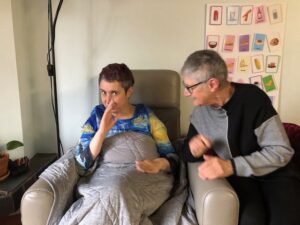
Shula’s earliest attempts at language were complex but confusing. As a toddler, she repeated everything Rachelle said, a phenomenon known as echolalia.
“I would read her Dr. Seuss books, and she could recite them back to me. Dr. Seuss books are very, very sophisticated, imaginative, with almost impossible to pronounce language,” Rachelle says. “It was never communication… it was just pure repetition.”
Then, between the ages of two and a half and three, “she went silent overnight.”
Since then, Shula has communicated largely through body language and emotion. In the past six months, something has shifted, thanks to a patient and determined team of Assistants at Villa Maria. One of them, Blanca, who has lived and worked with Shula for almost three years, has been especially instrumental.
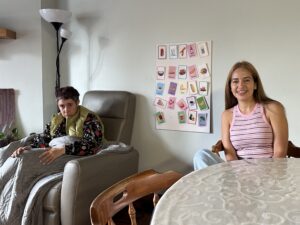
“In the beginning, she asked just for cheese,” Blanca says. “And now she is using cheese, coffee of course, pasta, hamburger, milk, ketchup, water, and pop.”
Blanca and the Villa Maria team have worked hard to help Shula feel more comfortable expressing herself.
“This was a team idea, but in the first times, I started asking Shula ‘what do you want, what do you need? If you need something, get the card and give it to me, and I will support you,’” Blanca says. “So, I started, and she continued asking just Blanca, Blanca, Blanca. So, we talked about that, and the other Assistants said, ‘you need to say Shula, you can ask other Assistants,’ because it’s important Shula feels free and comfortable to ask everyone in this house, not just Blanca.”
The team introduced just a few basic cards at first, including visuals for favorite foods, and waited patiently. “Now, I would like to add maybe a card about taking a shower, or going for a walk, because these types of activities, Shula loves.”
For the Assistants at Villa Maria, this new skill has been transformative, helping them understand Shula better and giving them a sense of pride. “Sometimes we want to support, but we didn’t understand exactly what the Core Members need,” Blanca says. “Now it’s better, it’s good communication.”
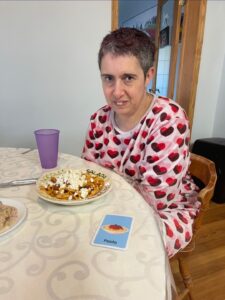
For Rachelle, who has spent five decades navigating the world of autism with her daughter, the progress feels deeply uplifting, especially in a world that often speaks negatively about autism. “All I want for Shula is to learn skills that make her navigation of life easier, I don’t think life is easy for Shula. I think autism is hard,” she says. “There is still a fundamental question of ‘are these people worthy of the same rights and freedoms and dignities that I have?’”
Still, Rachelle is careful not to romanticize the journey.
“When she uses the cards, she’s not relaxed, she’s anxious. Shula is always anxious. Why is she anxious? I have no idea. Is she anxious because it’s new for her, is she anxious because she doesn’t know if what she asks for is going to be provided for her right away, I don’t know.” Rachelle says. “But she knows exactly what she wants before she goes to the board… to me, it’s like Shula says ‘look, this is not easy for me. You started this. I didn’t ask for this. I’m showing you this card and you had better get me what I want without delay’.”
Rachelle credits the L’Arche community, and Blanca, with making the difference. “Blanca is laid-back in the best sense,” she says. “Shula resonates with it.”
Blanca, however, is quick to deflect praise. “This is teamwork,” she says. “We try every day. Sometimes Shula feels a little confused, but next time she does a better job.”
“This is the life,” Blanca adds. “This is the adventure. If we say, ‘Oh, this is no good for her, or she doesn’t like these types of things to do’ then we never give her the opportunity to make new things. And sometimes we receive a surprise. I think it’s important to try new things.”
Rachelle agrees. “She doesn’t have to win any medals. She doesn’t have to bring me any trophies. She’s her own person.” she says. “It’s just, an extra validation given to me where no more validation was necessary because I love the support my daughter receives. But to see this is really beyond.”
Even if the progress stops here, both women feel transformed by it.
“Even if there is no next,” Rachelle says, “I’m excited to see what happens next.”
